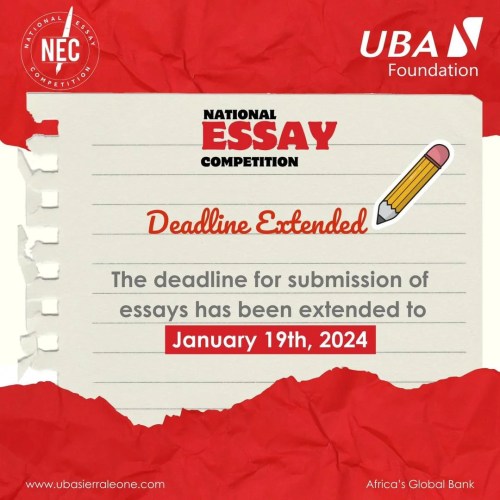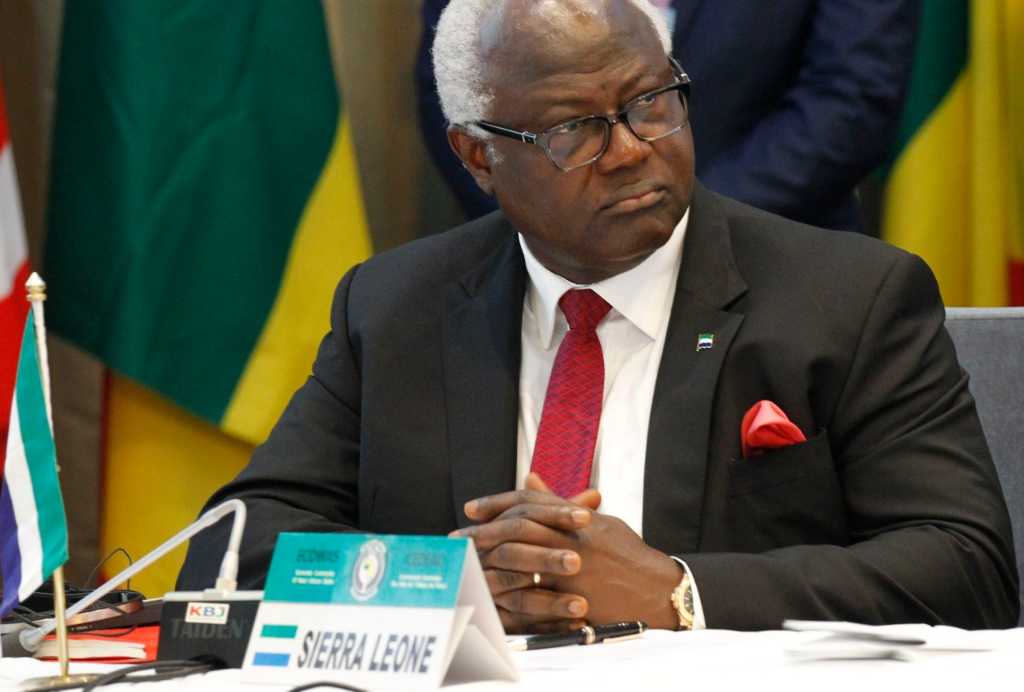By Sheriff Bojang Jnr
The head of the legal team defending Sierra Leone’s former president Ernest Bai Koroma – charged with treason and other offenses – says his team is ready to clear his name when he stands trial later this month.
A government statement issued in Freetown last Wednesday announced that “the former president is charged with four offences, including treason, misprision of treason, and two counts of harbouring”.
Koroma served as Sierra Leone’s president from 2007 to 2018. He was initially questioned in December as a suspect, in connection with the 26 November armed attack on military barracks, prisons and other locations in Sierra Leone that resulted in the killing of at least 20 people and freeing of hundreds of prisoners.
The authorities said it was a failed coup attempt led mostly by Koroma’s bodyguards. Though he denied any involvement in the alleged foiled coup, he has been put under house arrest in Freetown. Koroma was formally charged and released on bail a day after the authorities charged 12 others, including one of his bodyguards over the attack. His lead defence lawyer, Joseph Fitzgerald Kamara, says the “politically motivated and trumped-up charges” set a dangerous precedent.
Koroma was formally charged and released on bail a day after the authorities charged 12 others, including one of his bodyguards over the attack. His lead defence lawyer, Joseph Fitzgerald Kamara, says the “politically motivated and trumped-up charges” set a dangerous precedent.
“I’m in utter shock and disbelief that the evidence that has been presented to him … nothing has been compelling and there’s nothing there to make him culpable for any offences,” he tells The Africa Report.
Ready to debunk
Kamara says he and his colleagues in the defence team expect a smooth legal proceeding when the trial kicks off on 17 January. “We’re ready to challenge the charges. We’re ready to take any objections that are available within the law and we’re ready to debunk any false evidence that will be brought forward,” he says.
The trial of Koroma is expected to be one of the most crucial legal proceedings in Sierra Leone’s history and the government had promised a fair process. Civil society is monitoring, hoping to see that the government lives up to its promise.
“We want to hold the government to account on promises that they’d ensure that the investigation is transparent, and they’d follow due process and respect for the rule of law,” Abdul Fatoma, the executive director of Campaign for Human Rights and Development International (CHRDI), tells The Africa Report.
ECOWAS ‘asylum’ plan
On Tuesday, just a day before Koroma was formally charged, the Economic Community of West African States (ECOWAS) wrote a letter to Sierra Leone’s president Julius Maada Bio, detailing ‘an agreement’ to relocate Koroma to Abuja and to have all legal and administrative procedures against him discontinued.
The letter, signed by the ECOWAS Commission president Omar Touray, was presumably leaked and circulated online on Wednesday.
“I am pleased to inform your Excellency that as part of the agreement reached during the mission, the government of the Federal Republic of Nigeria has offered to host His Excellency Ernest Bai Koroma, former president of Sierra Leone, in Abuja on a temporary basis. The former president has accepted the offer to be hosted in Nigeria,” the letter said.
“Subject to your approval, arrangements will be made to fly Former President Koroma out of Freetown on Thursday 4 January 2024.”
In response, Sierra Leone’s foreign minister Timothy Kabba made a disclaimer, saying the ECOWAS letter did not reflect President Bio’s meeting with the ECOWAS Commission and sub-regional leaders. According to him, it was a unilateral proposition by the president of the commission.
Surprise situation
For Kamara, the ECOWAS letter containing the proposition came as a surprise. He suggests there’s no relocation plan on the table for Koroma.
“I don’t think anything is going on with our client in respect of that as I speak. He’s not aware that anything is ongoing. I was with him till late last night at his home. He’s biding his time and complying with the law,” he says.
ECOWAS spokesperson Amos Lungu declined to clarify the ECOWAS proposition, but said the bloc would issue a press statement if it had anything to say about the matter.
The letter has triggered mixed reactions in West Africa
Vladimir Antwi-Danso, an international relations expert and dean of Ghana Armed Forces Command and Staff College (GAFSC), is critical of ECOWAS for going “too far, too early” in its effort to relocate Koroma from Sierra Leone to Abuja.
“I wish the law court took its course in Sierra Leone and then [in] the aftermath of it, ECOWAS can come in and talk about peace and reconciliation,” he tells The Africa Report. “My question is, if this was any soldier in a similar situation, would ECOWAS go on the same tangent and ask for a reprieve, and ask for the soldier to be sent to Ghana or any other country to enjoy irrespective of the criminal charges?”
For Jibrin Ibrahim, a Nigerian analyst and political science professor, the ECOWAS plan to get Koroma out of Sierra Leone was the best way out of “the situation” in the country. He suggests that Sierra Leone’s recent tense security and political issues stemmed from its disputed 2023 election.
“The issue is that the legitimacy of the last election is what’s on the table. The legitimacy of the election was very dubious. And in response to that legitimacy deficit, I think the regime is trying to simply deal with those it considers as potential political threats,” he says. “I suspect that’s why ECOWAS decided that maybe the best solution was to get (Koroma) out of the country.”












